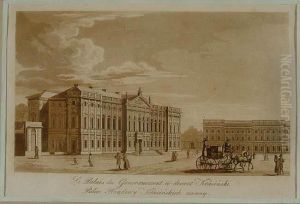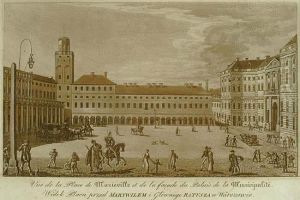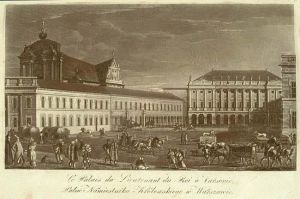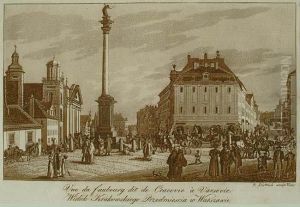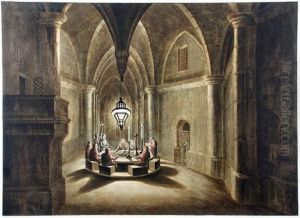Fryderyk Krzysztof Dietrich Paintings
Fryderyk Krzysztof Dietrich, known in German as Friedrich Christian Dietrich, was a notable German painter and etcher who was born on April 14, 1779, in Weimar, Germany. His artistic journey began under the guidance of his father, Johann Georg Dietrich, who was also a painter and engraver. Dietrich's early exposure to art within his family set the foundation for his career.
Dietrich's work was largely influenced by the cultural atmosphere of his time, which was characterized by the movements of Classicism and Romanticism. He attended the Weimar Princely Free Drawing School, which was part of the cultural circle around the Duchess Anna Amalia of Brunswick-Wolfenbüttel. This environment was enriched by the presence of prominent literary figures such as Johann Wolfgang von Goethe and Friedrich Schiller, whose ideas helped shape the intellectual landscape of the era.
Throughout his career, Dietrich developed a style that combined meticulous detail with a Romantic sensibility. He was known for his genre scenes, landscapes, and portraits, which often depicted the German countryside and the lives of its inhabitants with a sense of idyllic charm and pastoral beauty. His landscapes, in particular, were celebrated for their atmospheric qualities and attention to naturalistic detail.
Dietrich's etchings and paintings gained him recognition not just in Germany, but across Europe. He became a member of the Dresden Academy and later a professor at the Grand-Ducal Saxon Art School in Weimar. His influence extended to his students, who carried on his artistic legacy. Dietrich's works are preserved in various collections and museums, reflecting his contribution to the German art of the early 19th century.
Fryderyk Krzysztof Dietrich passed away on June 24, 1847, in Dresden, leaving behind a body of work that continues to be appreciated for its technical skill and its evocative portrayal of the German landscape and way of life during his time.
